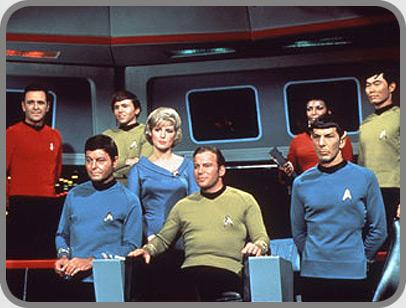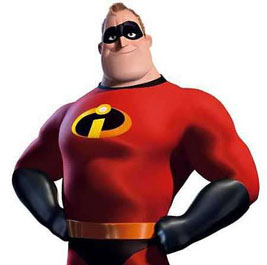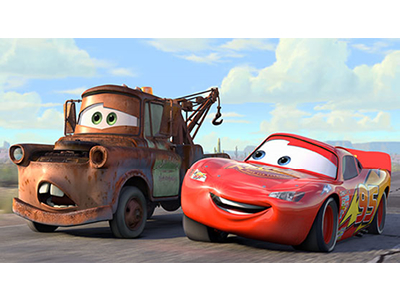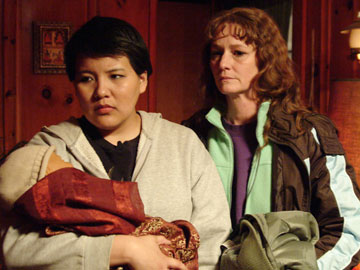OK, I've been very bad about maintaining this blog in the past month. My explanation for the week after my last post is that...well, I was moving into my first house, what can I say? If I wasn't going to be writing for Box Office Prophets (by the way, just to get it out of the way, I have been writing for that great Web site as of late, so check out my work on the A-List and my Classic Movie Reviews), why would I write here when I was too busy lugging boxes here and fro?
It's hard to escape the fact that I was being lazy elsewhere, though. Today, though, I seem to be inspired to put fingers to keys, so let's just run down a few things that have been poking around my brain.
I have seen, since the debacle known as Transformers: Revenge of the Fallen--a movie I'm seeing again tomorrow, though not really by choice--a few movies. Quick rundowns...Harry Potter and the Half-Blood Prince was extremely well-done. Not just as a Harry Potter movie, mind you, but as a movie. OK, that last part probably isn't true for anyone who hasn't seen any of the other movies or read any of the books. Let's be honest, though, if you fall in either of those camps, what are you doing watching the sixth movie in an eight-movie series as your initial one? No matter. This sixth installment was incredible, though not without its flaws (after thinking on it, and being nudged by a co-worker, I am forced to accept that the Burrow burning down halfway through is a beautiful exercise in style, but nothing more).
I also saw Bruno, a movie which was more disappointing than I expected, if only because the only cause for that disappointment was meant to be it copying Borat just too much. Bruno is certainly a carbon copy of Borat, but what bothered me was the movie's evident scripted nature. Too many people knew what was going on, maybe not that Sacha Baron Cohen was behind that faux Austrian accent, but they knew something was up. I'm not talking about the musicians who show up at the end; they knew, but since it was essentially an end-credits gag, I'm fine with it. The focus group? Fake. The talk show? Fake. So much of the movie was fake, so many of the big gags, that things just fell flat. Disappointing; not unfunny, but disappointing.
I also saw Moon, a movie that isn't getting enough of a push. It stars Sam Rockwell, the voice of Kevin Spacey, and...well, that's about it. The last couple of years have had far more movies with few actors and sparse scenery, but Moon may take the cake. This is a near-perfect movie; in fact, if only the last 10 seconds were dialogue-free, I'd be hard-pressed to find a single problem. Having said that, it's hard to fault the movie or its director, Duncan Jones (also known as David Bowie's son, and a gifted filmmaker) for its flourishes, when there are so few to speak of. This is a movie for anyone to appreciate the gift of great acting. Sam Rockwell is, alongside only a few others, a truly talented man, worthy of plenty of accolades and statuettes.
But speaking of Sam Rockwell, let's get to something that's pissing me right off: this weekend at the movies. Here are your three major releases: G-Force, Orphan, and The Ugly Truth. Let's deal with them in order. The first film is the guinea pig action movie. Yes, those are four words I never thought I'd even think, let alone type. A kids' action movie about guinea pigs. I realize that people like Sam Rockwell may need the money; hell, even Penelope Cruz may want a few extra dollars in her bank account. I would love to know what Jon Favreau is doing in this movie. Yes, I know Nicolas Cage also lends his voice to this embarrassment, but...well, he's Nic Cage. The man is currently filming a live-action version of The Sorcerer's Apprentice. You know...a live-action version of the animated short from Fantasia. The one where Mickey Mouse wears a hat and conjures up lots of brooms. So...yeah, he's just doing paycheck after paycheck. But why are good, talented, working people like Jon Favreau (who can't be hard up for money since he's directing the movies of the Iron Man franchise) in this shit?
Then, Orphan. This one just looks like a miserable time at the movies, but I have to admit, I was curious. I was curious enough to know what happened; what is wrong with this weird kid, I wondered. So I went to IMDb. I looked it up, and I have had this verified by enough Web sources to know that the sheer ridiculousness of the third-act twist isn't because it's fake. It's just ridiculous enough to be true. I won't tell you what it is, because if you pay to see it, you deserve to have your time wasted.
Here we come to my final rant. The Ugly Truth. A "romantic comedy" starring Gerard Butler and Katherine Heigl. I wish to bring to your attention once again a few choice words Ms. Heigl had about the movie Knocked Up, comments she made in Vanity Fair in its January 2008 issue. She called the film "a little sexist. It paints the women as shrews, as humorless and uptight, and it paints the men as lovable, goofy, fun-loving guys." Now, I'm not even going to get into the many, many reasons why she's wrong (or at least why the reasons she's giving to bolster the idea that Knocked Up is sexist are faulty). What I will ask you is this: do you know how much she got for Knocked Up? 300,000 dollars. Then, Knocked Up made a lot of money. Her next movie, a starring role, was 27 Dresses. She made $6 million for that film.
So, while you consider how badly the money means to her, let's think about her latest movie, where she stars as an uptight TV producer paired with a goofy, fun-loving cad of a guy. Hmm...I wonder what that sounds like to the woman who participated in that interview. Sexist, maybe? The Ugly Truth appears to be terribly sexist, and Katherine Heigl is quickly turning from an actress who speaks her mind sharply and wisely into an actress who just needs to close her fucking mouth for a minute and be happy that she makes millions of dollars for movies she can trash as soon as the check clears.
Now, I'm not going to lie; as lazy as I have been with this blog, and with getting my scripts out to agents (and I am very guilty on both counts), I can't lie: the fact that these three movies got made makes me bitter. I have been told that my scripts aren't engaging enough. Perhaps I need to make a movie with a demonic little girl with a talking guinea pig for a pet and an uptight mother, and the offers will flood in. Sigh. Big, fucking sigh.











